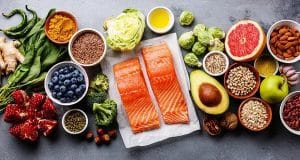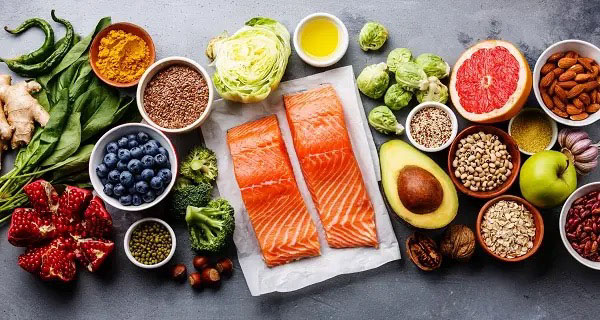
Nutrition for Athletes – Off Season Gains
As our junior athletes are heading into their big summer break and senior athletes are in the process of preseason, it’s tempting to relax and indulge. However, this time provides a unique opportunity to set yourself apart from the rest and set the stage for a big 2025 season. One of the most effective strategies to fine tune this summer is your nutrition.
The incorporation of correct nutritional strategies during the offseason can enhance recovery, build muscle, prevent burnout and optimise wellbeing.
Here are a number of ways for athletes to get the most from their nutrition this summer.
Focus on Recovery and Repair
Proper nutrition can support muscle repair, joint health and overall recovery with protein playing a pivotal role.
Aim for ingesting protein (approximately 20 to 30 g total protein, or approximately 10 g essential amino acids) during exercise or during the recovery period (postexercise). This can lead to increased whole body and muscle protein synthesis as well as improved nitrogen balance (1).
Lean and/or high quality protein sources like fish, eggs, lean meats, legumes and dairy will provide essential amino acids needed in muscle repair.
Nutrition plans need to be personalised to the individual athlete to take into account the specificity and uniqueness of the event, performance goals, practical challenges, food preferences, and responses to various strategies.(1)
Healthy fats such as omega-3 fatty acids found in fish, walnuts and flaxseeds have anti-inflammatory properties that can help reduce muscle soreness and promote joint health.
Collagen found in bone broth, chicken skin and salmon is great for supporting tendon and joint health and should be considered in an athlete’s diet.
Did you know we also have collagen supplements at SRA? This supplementation is one of the key ingredients to success for your off season and taking good care of your body.
Boosting Immunity
A long year of training and heavy competition can leave a heavy toll on the immune system. Nutrition can play a key role in the improvement of the immune system which can help prevent illness during an athlete’s time of rest and recovery.
Micronutrients (such as vitamins and minerals) are important for two main reasons. Firstly, building and repairing cells: Nutrients like iron, zinc, and magnesium help the body make DNA and other important cell parts. Secondly, Protecting the body from damage.(3)
Antioxidants, like vitamin C, are especially important when your body is under stress, like during intense exercise or when you’re sick. They help reduce the extra damage caused by increased levels of harmful molecules (called “oxidative stress”) that can build up in the body during these times.(3)
Vitamin C can be found in citrus fruits, berries, bell peppers and leafy greens, while zinc is found in shellfish, pumpkin seeds and lentils.
Vitamin D also plays an important role in immune health, it can be found in exposure to the sun or in foods such as fatty fish and egg yolks.
So often, we see athletes break down or fall sick at the end of the season – boost your immunity and take care of your gut health to ensure you don’t lose that extra pep in your step.
Optimising Gut Health and Digestion
The off-season allows for a time to improve on digestion and gut health which has been shown to have an impact on overall performance. A healthy gut allows for optimal absorption of nutrients and supports energy levels. The main function of the gut is to digest food and absorb nutrients.(2)
Probiotics can support the growth of healthy gut bacteria and are available commercially in capsule or tablet forms, as powder sachets, in the form of liquids and in specific foods such as yogurt and nutrition bars.(2)
Fiber rich foods can improve digestion and keep energy levels stable, these foods include whole grains, vegetables, fruits and legumes.
Probiotic supplementation can promote improvements in exercise performance through various pathways in athletes and physically active individuals using discrete strains of probiotics.(2)
Dietary Habits
A long break allows for athletes to explore new foods, try different meal timing strategies and experiment with different eating patterns.
Consider experimenting with different meal timings such as a protein rich meal post workout or carbs earlier in the day to fuel afternoon/evening training sessions.
Maintaining consistent hydration is key to prevent dehydration which can impair recovery, digestion and overall health and wellbeing.
Food Prioritisation
Focus on a good balance of protein, healthy fats and complex carbs. Proteins support muscle maintenance, healthy fats are essential for hormone regulation and brain function and carbohydrates provide a key fuel for the brain and central nervous system and a versatile substrate for muscular work where it can support exercise over a large range of intensities due to its use by both anaerobic and oxidative pathways. (1)
Carbohydrates from whole grains, fruits and vegetables should be prioritized over refined sugars and processed foods.
Now, I’m not saying don’t eat the dessert or don’t drink that second beer at the family Christmas party. Life is about moderation, aim for 80% of your diet to be clean. Don’t be a robot.
References:
- Position of the Academy of Nutrition and Dietetics, Dietitians of Canada, and the American College of Sports Medicine: Nutrition and Athletic Performance. Canadian journal of dietetic practice and research : a publication of Dietitians of Canada = Revue canadienne de la pratique et de la recherche en dietetique : une publication des Dietetistes du Canada [Internet]. 2016 Mar 1 [cited 2024 Nov 19];77(1):54. Available from: https://research.ebsco.com/linkprocessor/plink?id=104bb37a-3c54-322b-941d-0d32a15548df
- Jäger R, Mohr AE, Carpenter KC, Kerksick CM, Purpura M, Moussa A, et al. International Society of Sports Nutrition Position Stand: Probiotics. Journal of the International Society of Sports Nutrition [Internet]. 2019 Dec 21 [cited 2024 Nov 19];16(1):1–44. Available from: https://research.ebsco.com/linkprocessor/plink?id=8bc44136-d6b1-3d4e-a3e7-c2fbada650d9
- Walsh NP. Nutrition and Athlete Immune Health: New Perspectives on an Old Paradigm. Sports Medicine [Internet]. 2019 Dec 1 [cited 2024 Nov 19];49(Suppl 2):153–68. Available from: https://research.ebsco.com/linkprocessor/plink?id=ea5cf13a-673f-3d52-83a4-248af38fec05

